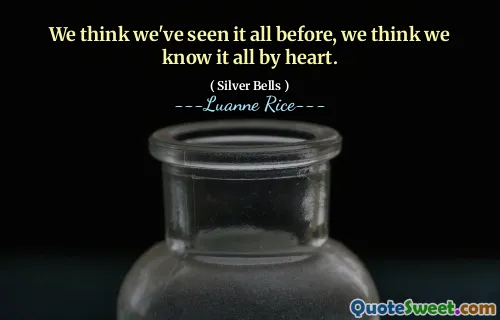
Sometimes you have to grow up before you appreciate how you grew up.
This quote profoundly captures the complex relationship between maturity and appreciation—it reveals a truth about our personal growth journeys. Often, when we are young, the circumstances and environment in which we grow up can feel limiting or frustrating, and it's easy to take for granted the subtleties and strengths that our upbringing has given us. However, with time and perspective, especially as we mature, we start to understand the distinctive ways our past has shaped our values, our resilience, and our character.
The phrase "sometimes you have to grow up before you appreciate how you grew up" speaks to a reflective process that occurs as part of emotional and psychological development. It's only once we step outside our immediate experience—through extended life experiences, challenges, and understanding—that the layers of our upbringing become clearer. We recognize the sacrifices, the lessons, and even the imperfections that contributed positively to who we are today. This quote encourages an attitude of gratitude, showing that growth is not just a biological or chronological process but an inner evolution where respect and appreciation for one's roots take a front seat.
Furthermore, it invites us to reflect on our own backstories with compassion instead of criticism. By fostering this appreciation, we can reconcile with past hardships and celebrate the strengths we derived. In a broader sense, this mindset helps heal generational divides by acknowledging that everyone’s background, no matter how complex, carries value. It’s a reminder that maturity teaches not just responsibility and reason, but also empathy toward our younger selves and the environments that nurtured us. This insight is beautifully aligned with themes often explored in 'Perfect Peace' by Daniel Black, focusing on finding tranquility in understanding the self and one's history.


